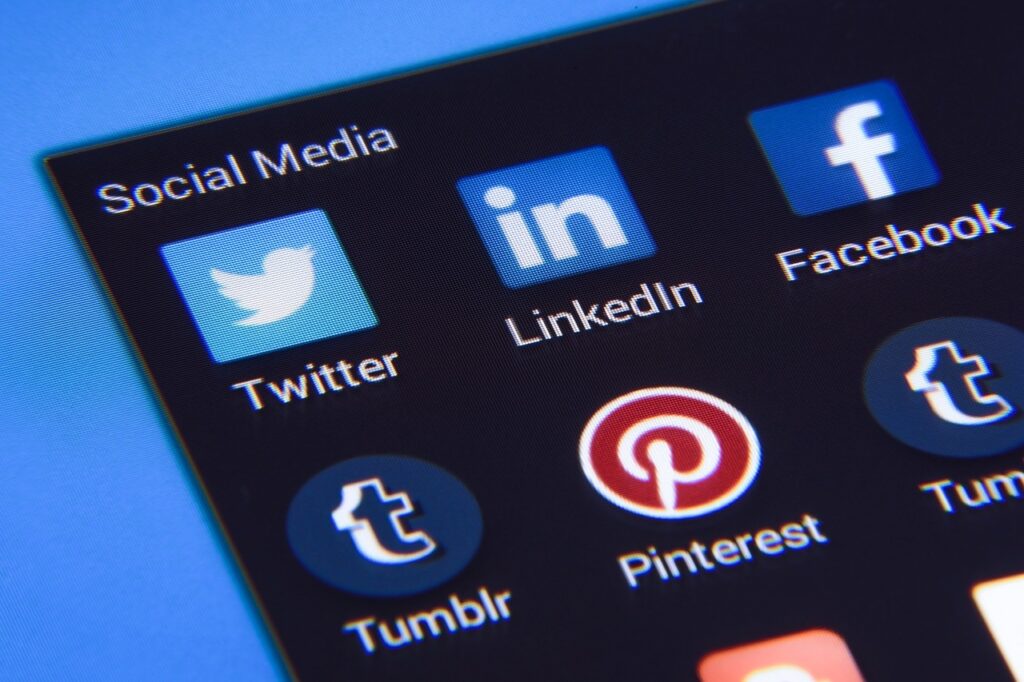Social media is an ever-evolving online environment, and with it comes new terminology. Here are some essential social media terms:
Favorited Tweets on Twitter is the equivalent of “retweeting.” Favoriting tweets lets other Twitter users know you appreciate their content by showing appreciation with a heart icon.
Troll – an online user that causes disruption or discord online. Trolls often gather in forums, comment sections, or chat rooms.
Online Community
An online community refers to any group of individuals who interact online in pursuit of shared interests, either organically or through businesses, organizations, and brands. Examples include social networks like Facebook and LinkedIn; microblogging services like Twitter; image hosting/sharing websites like Flickr/TikTok; as well as wikis.
Online communities offer many advantages to both their users and those running them. Users can connect with others who share similar interests, receive support if illness strikes, build customer relations between companies and customers, and promote businesses or organizations by joining an online community.
Successful online communities require ongoing maintenance and effort from participants, who must be able to address issues that are important to them while finding solutions – this presents many community managers with a daunting challenge when dealing with people who do not share similar interests.
Problems associated with online communities arise because participants cannot interact face-to-face, leading to feelings of isolation and dependence among members. Therefore, community leaders should set clear goals and rules for members while maintaining order within the group and making sure everyone works towards reaching its collective goals.
Online communities serve many different purposes, yet all share common qualities: an informal yet welcoming atmosphere, the ability to share ideas among members and communicate freely between sessions, as well as flexibility regarding time and location. Communities may be open to everyone or only a select few and often focus on one particular hobby or interest area.
Branded online communities can be an effective tool for increasing brand recognition and cultivating deeper relationships with your audience. Furthermore, they can increase customer or member loyalty while positioning your company as an industry authority.
Social platform
Social media is a type of digital technology that facilitates the exchange of information and content through virtual networks and communities. These networks offer services from networking to blogging and video streaming; millions use them daily to express their thoughts, interests, and opinions online. Although widely recognized for helping build communities online, critics also hold it responsible for spreading false news or encouraging hateful speech through their networks.
Social media platforms serve to bring individuals with similar interests, hobbies, or characteristics together. They’re also great tools for marketing and branding purposes – helping users discover products or services they might like to purchase; plus they provide another form of communication between members via texting and direct messaging.
Some of the most widely-used social platforms include Facebook, Instagram, Twitter, and YouTube. Each allows users to create profiles with their name, photo, and personal details; share content such as pictures, videos or links; interact with each other by leaving comments; or participate in discussions by commenting on posts or stories shared.
Other social media platforms are tailored specifically for professional networking. These sites allow business professionals to make new contacts, discuss job openings, and research other companies. Some even feature search tools for specific occupations or interest areas. Furthermore, dedicated forums exist for discussing specific issues while some platforms even cater specifically to law enforcement or human resources professionals.
Most individuals have at least one social media account on one of the major platforms such as Facebook, Instagram or TikTok and use it to connect with friends, family, and colleagues as well as post images and videos that showcase their talents for acting, dancing, or cooking.
These platforms may provide entertainment and information, yet they also impede people from communicating face-to-face with one another. Social media usage among today’s youth tends to exceed other activities in real life and this can have serious repercussions for mental health; such as insomnia, bipolar disorder, or depression – especially common among teenagers.
Social network
Social networks are websites that enable individuals to share information, ideas, personal messages, and other forms of content. Unlike traditional media sources such as newspapers or TV, these social networking websites allow individuals to interact in ways that benefit themselves and their communities – as well as being used for business purposes such as keeping in contact with friends, finding jobs, or promoting businesses and organizations. They may even be used for political activism campaigns and awareness-raising campaigns.
These platforms enable multi-party communication and enable users to become authors or creators rather than passive consumers of media. Common features for such systems include comment sections, hashtags, news feeds, and algorithms that promote interaction and participation – turning passive media consumers into media creators who can revolutionize how a business or organization connects with its target audience.
Examples of social networking websites include Facebook, Instagram, LinkedIn and Twitter. These platforms aim to bring individuals and groups with shared interests or demographics together through private or group chats as well as upload images or videos. Facebook remains the world’s most popular social network with over 675 million active users worldwide and started as a way for friends to connect but has since expanded into job-hunting services, entertainment platforms, and business promotions.
Other social networks allow individuals to connect with family, co-workers, and classmates through photos, videos, and information shared online. Some sites allow users to create profiles showcasing professional credentials or hobbies; Classmates is one such site that helps former schoolmates reconnect. The Instagram photo-sharing platform promotes sharing among users; Facebook, Linkedin, and Twitter provide networking platforms where individuals can make new connections or employers.
Social media has quickly become an essential tool for companies, as well as being an integral component of everyday life for many individuals. From improving our communication to work and play to spending more time than we would like on it in real life with friends and family, most people spend more time than necessary online. While some risks associated with its use (such as addiction or mind-related issues) exist, most users acknowledge its positive impacts on their lives.
Social media marketing
Social media marketing refers to using social networks such as Facebook or Twitter to market and sell products or services. Businesses of all sizes use this type of promotion for brand building and lead generation purposes as well as to foster customer loyalty and drive traffic back to their websites. Social media marketing should be part of any company’s digital strategy and can be done at an economical cost.
Social media networks refer to any online community that utilizes Internet technologies and systems for interaction among members. Such platforms include websites, smartphones, mobile apps, servers, and third-party vendors that connect people who share common interests. Social media networks are typically free for members to join; however, some use paid ads as revenue generators on their platforms.
Social networking has become an integral part of modern life, with more people using it now than ever before. Social media has transformed how we communicate and shop, with savvy brands taking advantage of its power to gain an edge over their competition. Although social media may improve customer satisfaction and sales for companies, managing it effectively may present management with its own set of challenges.
Social media sites like Facebook, Instagram, and Twitter are some of the most widely used platforms, each offering different features that can help market a business or brand effectively. By posting quality content to these channels regularly and distributing it to followers via these networks, brands can increase visibility while simultaneously driving traffic back to their website and increasing revenues.
Popular features of social media include hashtags, tagging, and live streaming. Tags are keywords or phrases used to identify particular topics or trends within posts, comments, or advertisements that direct users directly to specific pages on a site. Live streaming enables users to broadcast their content online live in real-time.
Memes are ideas, jokes, and concepts that go viral online. Memes typically take the form of images with text surrounding them but can also take audio, video, or links as forms. Being aware of what your audience is discussing helps avoid spreading misinformation and damaging brand reputation.











